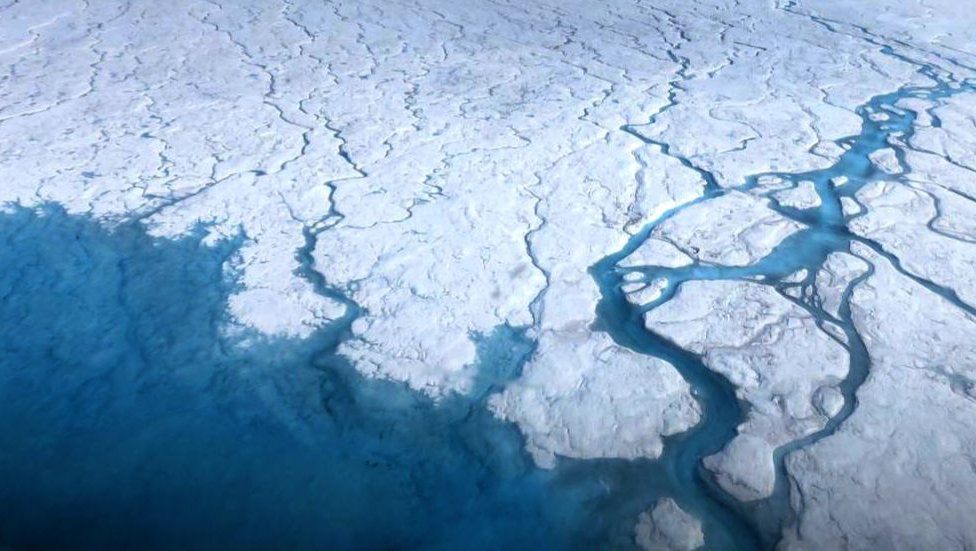
Warmer air is melting the top of the Greenland Ice Sheet
If you could shape an ice cube out of all the ice losses from Greenland and Antarctica over the past three decades, it would stand 20km high.
An international group of scientists who work with satellite data say the acceleration in the melting of Earth's ice sheets is now unmistakable.
They calculate the planet's frozen poles lost 7,560 billion tonnes in mass between 1992 and 2022.
Seven of the worst melting years have occurred in the past decade.
Mass loss from Greenland and Antarctica is now responsible for a quarter of all sea-level rise.
This contribution is five times what it was 30 years ago.
The latest assessment comes from the Ice Sheet Mass Balance Intercomparison Exercise, or Imbie.